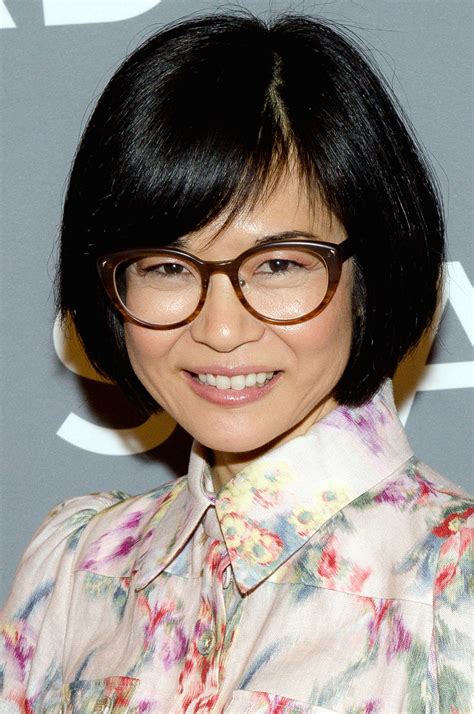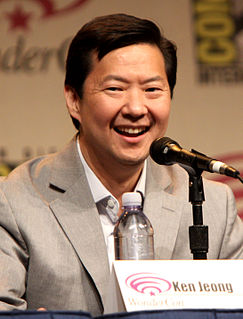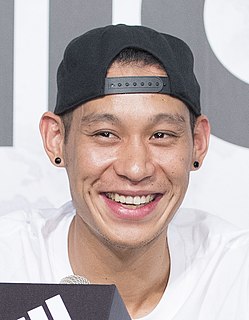A Quote by Keiko Agena
I always felt that just being an actor is difficult. Being an Asian-American actor doesn't make it more difficult. I see it as an opportunity and a chance to help other Asian-American actors coming along.
Related Quotes
Does people not asking me about Asian American literature mean they don't see it as its own literary tradition? I certainly believe in it as its own literary tradition, because your race plays a great factor in how you are seen by the world, and how you see the world; the fact that I'm an Asian American isn't incidental to who I am as a writer. Where it becomes difficult is defining what, if anything identifiable at all, makes an Asian American book an Asian American book, other than the fact of its creator being Asian. And I'd argue that there is nothing identifiable beyond that.
It's very difficult to be asking other people for opportunities. It is much more empowering to be creating opportunities, to be the one who is saying, 'Look, I'm going to take this from the ground up and create a story that is meaningful to me as an Asian American and cast it with Asian Americans and have Asian Americans writing it.'
I always feel like people misunderstand the difference between an Asian story and an Asian-American story. That's completely different, too. I have friends who grew up in Asia, and our experiences are so different. Even though we might look the same, I feel like being Asian and then being Asian-American is completely different.
I wish people wouldn't just see me as the Asian girl who beats everyone up, or the Asian girl with no emotion. People see Julia Roberts or Sandra Bullock in a romantic comedy, but not me. You add raceto it, and it became, 'Well, she's too Asian', or, ‘She's too American’. I kind of got pushed out of both categories. It's a very strange place to be. You're not Asian enough and then you're not American enough, so it gets really frustrating.
I happen to be one of those lucky people who says that she's a working actor. And to always be working is very fulfilling and I'm just lucky because the opportunities just came up. And as an Asian American female actor, the opportunities have been furthering, have been widening all across the years. And I can say that there are many young people who see that the opportunities are expanding, as well as you can make it yourself.
We cannot educate white women and take them by the hand. Most of us are willing to help but we can't do the white woman's homework for her. That's an energy drain. More times than she cares to remember, Nellie Wong, Asian American feminist writer, has been called by white women wanting a list of Asian American women who can give readings or workshops. We are in danger of being reduced to purveyors of resource lists.
I wish reporters were more in tune to the difference between the Asian experience and the Asian-American experience. I think often they lump the two together and think that when I talk about Asian-American narratives that they can cite 'Crouching Tiger, Hidden Dragon' or 'Mulan' as proof of concept when it's a different experience.
I think that's what we need more of: Asian-Americans on movie screens and TV screens where they're normalized. Where it's not about them being Asian or a person of color. It's just about them being a human. I think that's why sometimes when I see movies with an Asian family, but it's very stereotyped, I don't find that relatable.



































